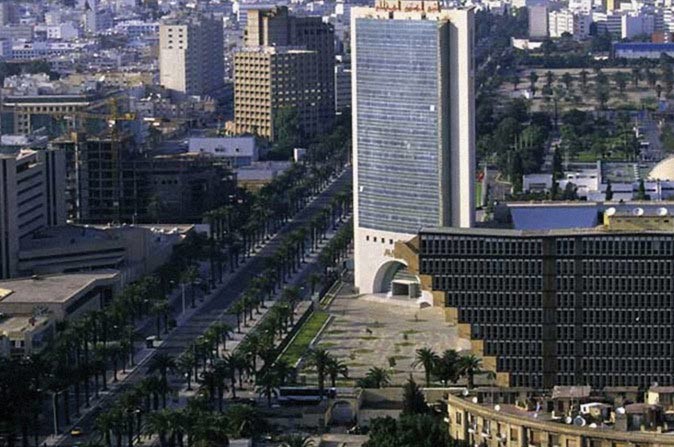Finance / Tunisia
Banking on change
An overhaul of the Tunisian banking is expected to give the country the means to fulfil its ambitions.

Avenue Mohamed V in the financial district of Tunis
Tunisian banks are involved in more than 85 % of investments and financing of the country’s economy. However, the banks suffer from a chronic lack of liquidity that forces them to seek refinancing from the central bank (BCT). Both the International Monetary Fund and the credit rating agencies have recently expressed their concern about the situation. The Tunisian State has therefore decided to act, commissioning a major audit of the three large public banks, whose results will be published by the end of 2013.
The public banks under scrutiny
The lack of autonomy of the three public banks – Société Tunisienne de Banque (STB), Banque Nationale Agricole (BNA) and Banque de l’Habitat (BH) – has thwarted their modernisation. While sta-ting that « they play an essential role in the financing of the economy and the mobilisation of savings, and remain at the service of state enterprises, particularly during difficult times », the governor of the BCT admits that they face considerable difficulties. Although they account for 37% of total assets in the sector, how to address their undercapitalisation is a constant question mark. Merge them into a single public banking entity or privatise them partially? Their fate will be settled once the ongoing audit is completed.
A plethora of private banks
For 10 million inhabitants, thirty banks – of which ten account for 90% of the total business volume. The moral of the story is: there are too many banks for such a tiny market. Hence, a restructuring of private banking is also expected, and the only conceivable path is consolidation with the primary goal of increasing equity capital levels.
Islamic banking, a source of liquidity?
Seen as a true revolution in the country, the Finance Act 2013 provides for the issue of sukuks* for a total value of some 630 billion dollars. This unprecedented resort to an instrument of Islamic finance can, however, be explained by a need for liquidity and diversification of the budgetary financing sources. Now the challenge lies in persuading Tunisians to engage in a form of economics they are unfamiliar with, despite the fact that there are already three Islamic banks operating in the country (Al Baraka, Annoor and Zituna).
